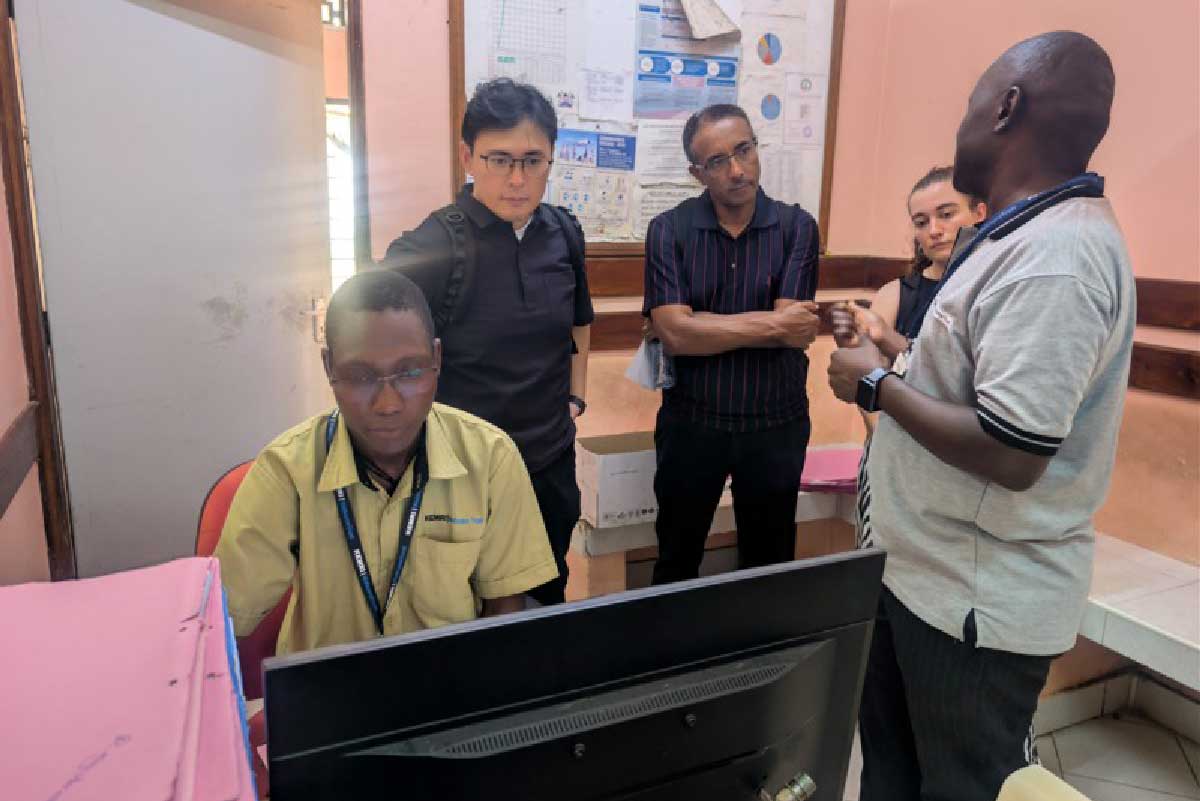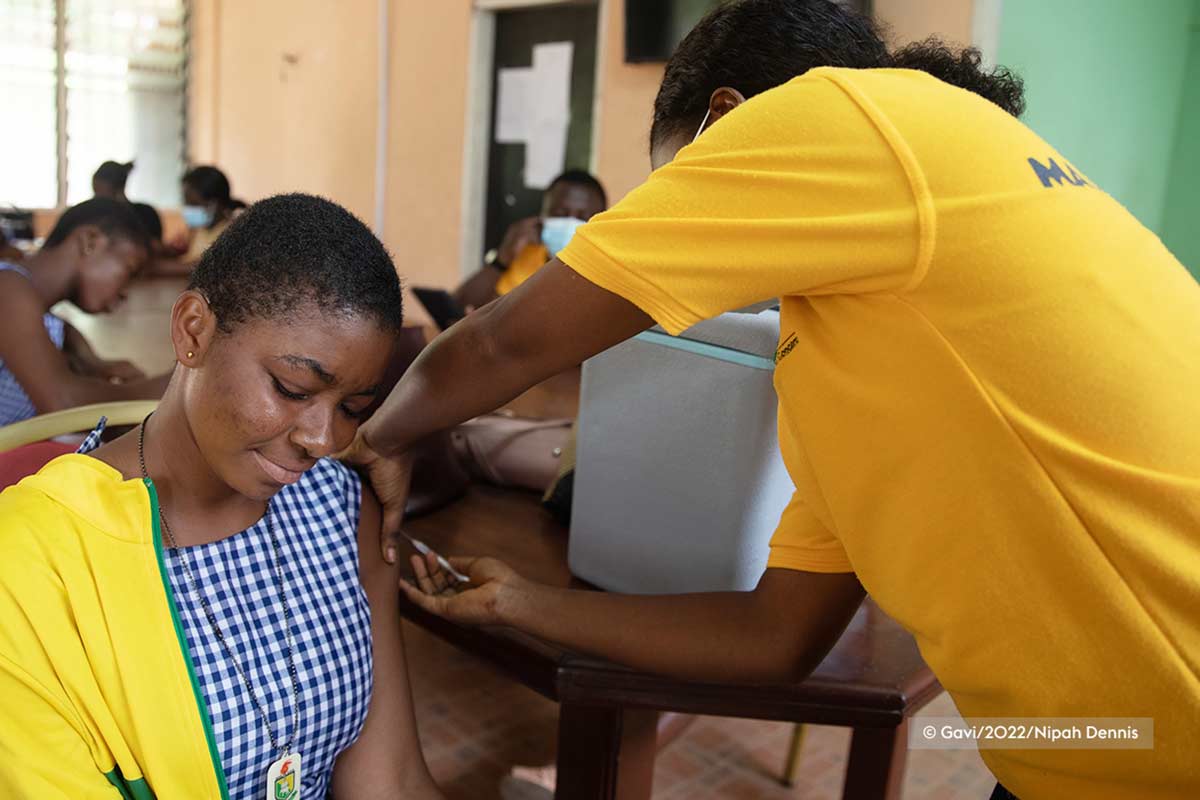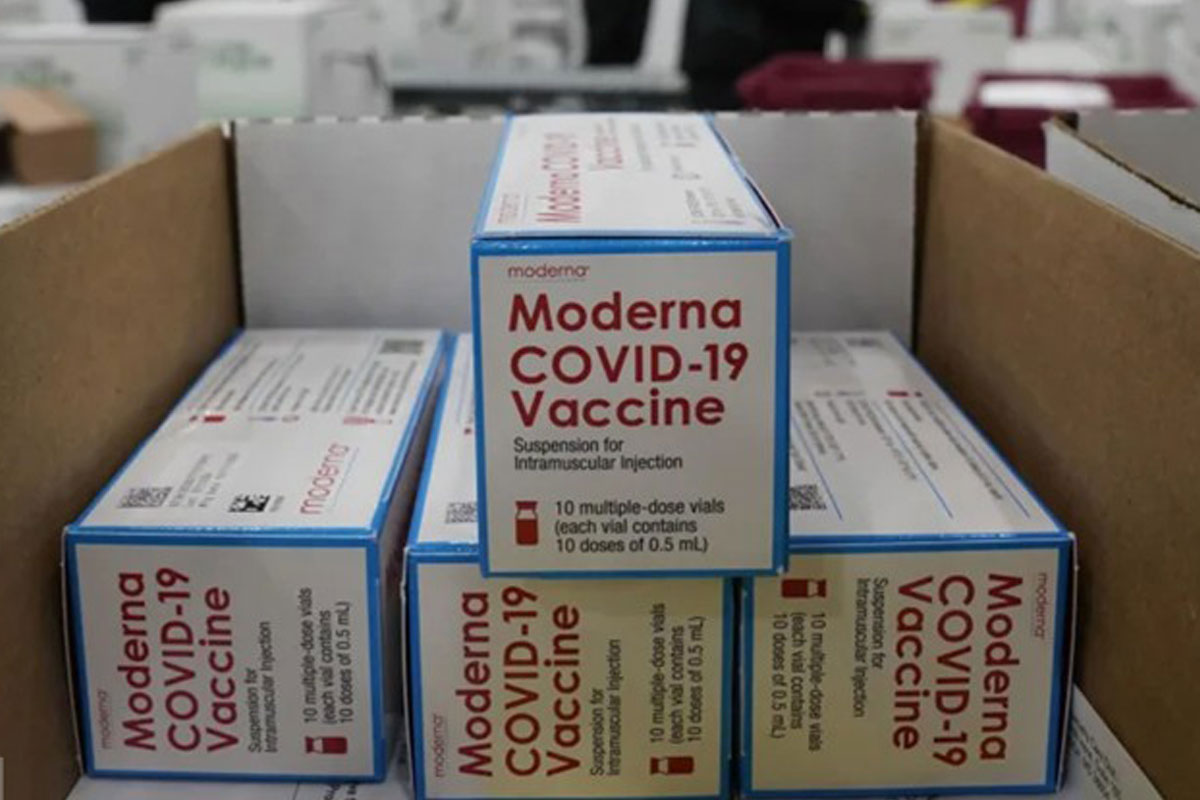Forecasting viral mutations
Advances in AI are making it possible to quickly and effectively model potential viral vaccine targets
- 24 October 2023
- 5 min read
- by CEPI

From Alpha to Omicron, SARS-CoV-2 and its multiple variants gave the world a masterclass in viral evolution. There is an evolutionary arms race between viruses and our immune systems' ability to adapt to their disease-causing potential.
Vaccines have helped give humankind an edge in this battle by teaching our immune systems how to fight viruses before they are exposed to them, thereby reducing the risk of disease. Over the past century, vaccines have helped to eradicate deadly diseases such as smallpox.
Now, they save 2-3 million lives a year and even help combat certain types of cancer, such as cervical and throat cancers caused by human papillomavirus (HPV). The impact of COVID-19 vaccines has been even more striking. In the first year of their rollout during the pandemic, vaccines saved 20 million lives.
Viruses constantly mutate, evolving new ways to escape our immune system defences. But what if we could anticipate future viral variants that could avoid immune detection? This kind of forecasting could give the world time to develop and optimise vaccines and therapeutics before such variants emerge.
Expanding the use of AI for epidemic and pandemic preparedness
Recent advances in AI technology have made it possible to quickly and effectively model viral mutations and derive vaccine targets based on these predictions. To accelerate the application of these AI tools for epidemic and pandemic preparedness, CEPI is partnering with Harvard Medical School, providing up to US$8 million to advance EVEscape, a new tool that uses predictive modelling to estimate the ability of a novel viral variant to escape immunity.
"This type of modelling can be used to predict viral mutations that confer immune-escape abilities before the appearance of those mutations in the population", explains Danny Scarponi, an Epidemiologist and Data Scientist at CEPI. The information generated from this kind of predictive modelling could enhance early warning systems, he added, and could be used to develop vaccines that have a larger breadth of protection, including against future variants that may evolve the potential to evade immunity.
"We underestimate the ability of things to mutate when they're under pressure and have a large population in which to do so"
Debora Marks, Professor of Systems Biology in the Blavatnik Institute at Harvard Medical School
A study published in Nature in October, 2023, showed that had the EVEscape technology been deployed at the start of the COVID-19 pandemic, it would have predicted the most frequent mutations and identified the most concerning variants of SARS-CoV-2. The tool also made accurate predictions about other viruses, such as HIV and influenza, and about Nipah and Lassa, two of CEPI's priority pathogens.
"We underestimate the ability of things to mutate when they're under pressure and have a large population in which to do so," said Debora Marks, Professor of Systems Biology in the Blavatnik Institute at Harvard Medical School and Principal Investigator of the EVEscape project. "We want to know if we can anticipate the variation in viruses and forecast new variants – because if we can, that's going to be extremely important for designing vaccines and therapies".
Have you read?
Over the past year CEPI has made a wide range of AI investments as part of its efforts to better prepare for future epidemic and pandemic threats, and to support crucial progress towards the 100 Days Mission.
The 100 Days Mission is a goal spearheaded by CEPI and backed by the G7 and G20 which aims to accelerate the time taken to develop safe, effective, globally accessible vaccines against emerging disease outbreaks to within 100 days.
"We just need to be cautious not to say this computational design is going to be the solution to everything. But it's a great starting point."
Dr Melanie Saville, Executive Director of Vaccine Research and Development, CEPI
In November 2022, CEPI teamed up with University of California, Davis to support application of AI to expand their "SpillOver" platform to help experts rank viral families according to epidemic or pandemic risk. Then in June 2023, CEPI announced a partnership with the University of Leipzig to use the Rosetta Macromolecular Modelling platform to generate state-of-the-art immunogen designs and speed up development of future vaccines against novel viral threats. And in July 2023, CEPI partnered with a Houston Methodist Research Institute-led consortium to use AI to design vaccines against with pandemic potential.
In an interview with Nature, Dr Melanie Saville, Executive Director of Vaccine R&D at CEPI, explained that machine learning has the potential to vastly increase the number of vaccine designs that can be used quickly to identify the most promising candidates. "We just need to be cautious not to say this computational design is going to be the solution to everything," she said. "But it's a great starting point."
Building a Global Vaccine Library
Solving many of the challenges of vaccine design in advance will give the world a fighting chance of stopping the next pandemic virus in its tracks, ideally within the timeline of the 100 Days Mission. Predicting how viral threats could mutate to evade our immune systems, and using these insights to identify potential vaccine targets in advance is a major element that will feed in to the establishment of a proposed Global Vaccine Library.
Information and data on potential antigen designs could be stored in the Global Vaccine Library, so that they can be quickly used to advance the development of vaccine candidates in the event of an outbreak of a novel viral disease.
The establishment of a Global Vaccine Library is a key enabler of the 100 Days Mission, explains Dr Richard Hatchett, CEO of CEPI. "Building the Global Vaccine Library is a huge task which cannot be achieved by any one country or organization working alone. It will require coordinated investments in countermeasure development and, in outbreak situations, rapid data sharing", he said. "For its part, CEPI is making key investments to help the world solve many of the challenges of vaccine design in advance of an outbreak of a virus with pandemic potential. Advances in AI technology are making this possible by revolutionising how we identify potential vaccine targets, laying the foundations for a library of AI-generated antigen designs ready to use against future pandemic threats."
Written by
Mario Christodoulou
Head of Digital and Content
Website
This article was originally published by CEPI on 20 October 2023.









